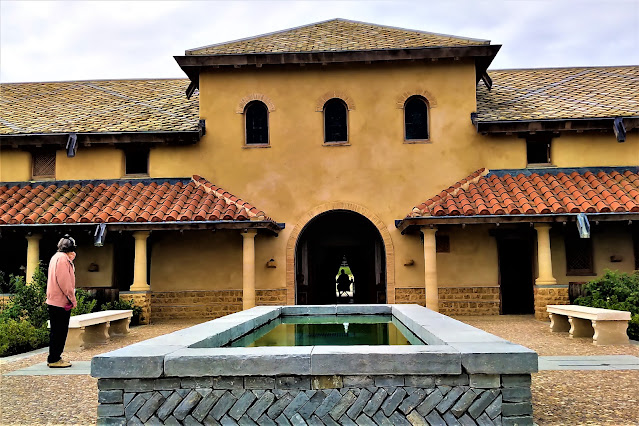SURVIVING THE DOWNTURN-2
SURVIVING THE DOWNTURN
-2
Background
This is an update on my previous post of April 16th
2020.
By way of a background, I spent many years as a senior risk
executive in a large banking group followed by 13 years running my own in-bound
tour company. Furthermore, I have published an 800 page book entitled a Visitors’ Guide to Scotland. These experiences
provide a useful foundation from which to assess the future of the Scottish
tourism industry in context of the current pandemic.
Current state of
pandemic
At time of writing, there are some indications that the U.K.
authorities are in control although death rates are still high. The ‘lockdown’
is working, albeit at enormous economic cost. As in many other countries, unemployment
is at historic high levels and travel heavily restricted.
Impact on tourism
businesses
From press and other media sources it is evident that many
tourism related businesses are suffering and approaching end of their cash tolerance
levels. For reasons rehearsed previously and below many tourism businesses will
have to face up to around three years with negligible income which is, clearly,
not sustainable.
Vaccine
A vital part of the solution is production of an effective
and safe vaccine. Many pharma and biotech companies are working hard on the
vaccine project but it would be prudent to assume that such will not be
available (tested and approved) until around September 2021 and even there is
the massive logistical effort to vaccinate billions of people around the globe
(assuming they are cooperative).
Managing the virus
risk
With the possible exception of self-catering (vacation
rental), tourism is an intensive people facing business, e.g. hotels and
accommodation providers, tour buses, tour guides, etc. Firstly, visitors from
overseas may not wish to visit this country due to the actual and perceived
risks of catching the virus. Secondly, there is the key issue of how to manage
the virus risk of incoming visitors.
It seems to me that owners and managers of in-bound tourist
business will have to find ways of managing the potential infection risks from
clients and, in particular, protecting staff and other clients to whom they owe
a duty of care. There is zero likelihood of insurance cover being available for
the specific coronavirus risk. In this regard:
- Screening at airports and other embarkation points (if available) will be an unlikely panacea. Asymptomatic persons may not be detected and self-isolation for 14 days is clearly not an option.
- Self-certification of vaccination may be possible but how can such be independently verified?
- Do businesses ban clients from certain countries where the virus has not been effectively contained?
- ·What about the virus risk of visitors from visiting cruise ships?
Guest experiences in
Scotland
There is another angle in that, exactly, what sort of experiences
can be offered to guests? Major sites such as castles, grand houses, Edinburgh
Fringe and the like can attract high volume, ‘lava flows’ of people which is
unthinkable in the current environment.
Implications for
intermediate future
Looking to the intermediate future, the historically high
levels of unemployment alone (in the major economies) will suppress
discretionary spend on travel. I have to conclude that this consideration
allied with the virus risk rehearsed above will result in such low visitor
numbers that many tourism businesses will be forced to close. On a five year
view this may be necessary anyway, in order to match capacity with demand.
Climate
considerations.
On a final point, maybe we are facing up to an historic ‘inflection
point’ in the relation between people and the planet. Reduction in airplane
travel, heavily polluting cruise ships and hundreds of tour buses will
certainly help in the drive to control climate change.
DISCLAIMER
The
foregoing information and observations are provided in a spirit of helpfulness
in context of the current business environment. They does not purport to be
exhaustive and individual circumstances may vary. Crucially, no legal liability
can be accepted. Whenever possible business owners should seek advice from
their appropriate professional advisors.

Comments
Post a Comment